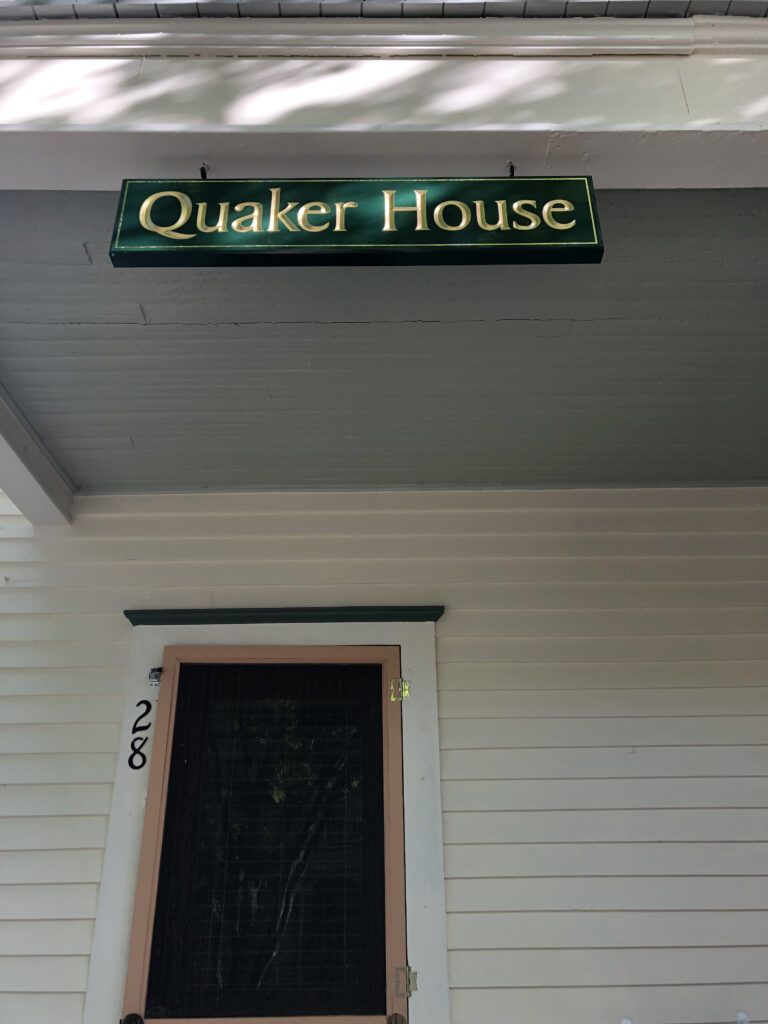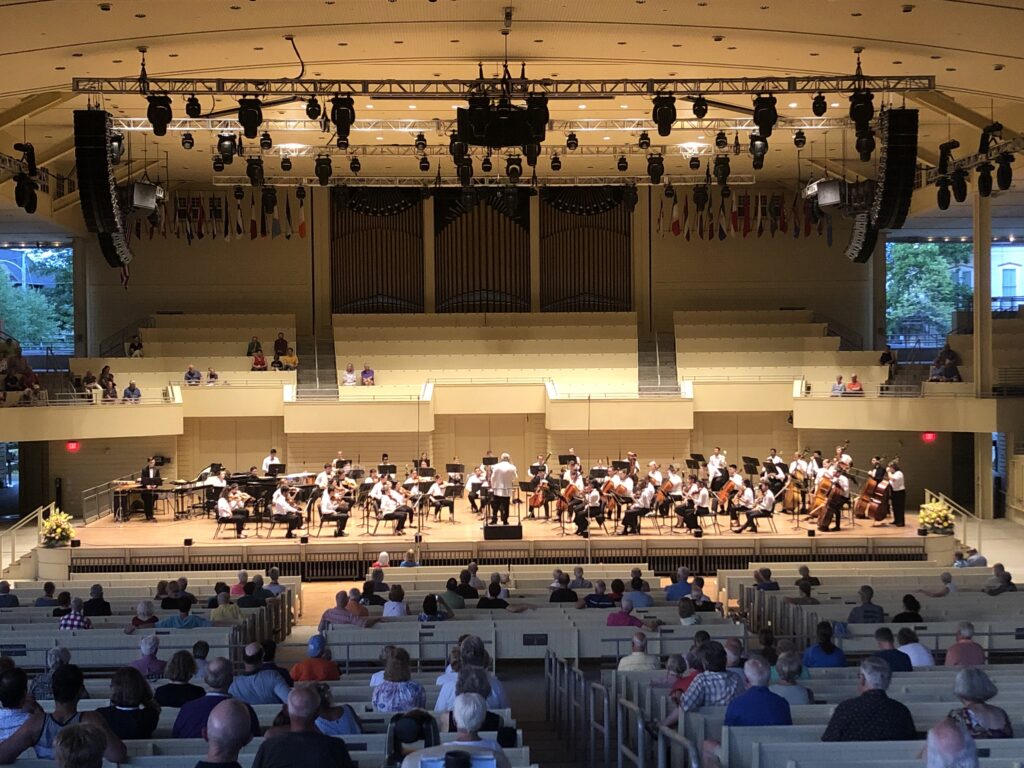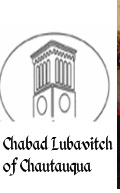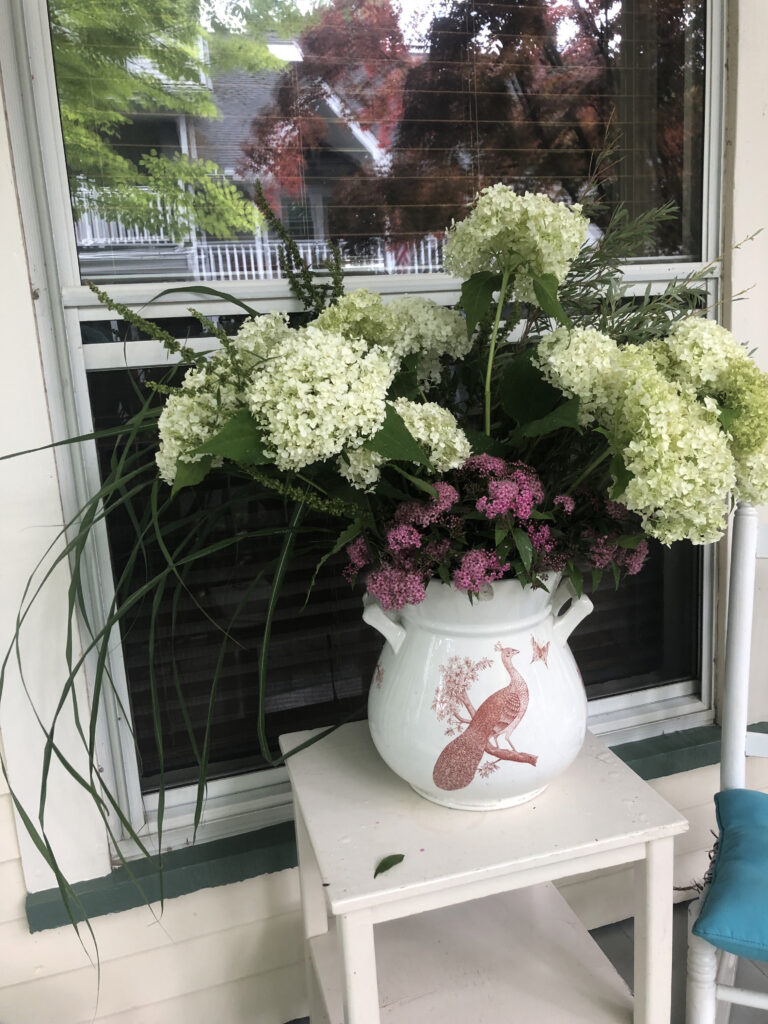Week One: Integrity
from Emily Provance, Friend in Residence

Certain types of communication can cross a lot of boundaries. For example, The Glenn Miller Orchestra, which came to Chautauqua Thursday night. Everybody turned out, from infants to elderly, and everybody danced in their seats. In fact, one woman, who looked about eighty-five, refused to sit down for the first song after intermission, jitterbugging merrily “Little Brown Jug.” One babe in arms, just old enough to support her own head, sat in her mommy’s lap and pointed at the orchestra, mouth agape, as big band worked its magic on yet another generation.

But not every moment of the week represented the best of humanity. The institution focused on the theme of China, and we heard about China’s one-child policy, about the relationship between China and climate change, about religion in China, about government censorship, and about the gap between the Chinese government and its surprisingly diverse people. I expected to spend a lot of time thinking about the ways in which Chinese people differed from me, but in fact, the various speakers and discussions suggested no such thing. I got the feeling that the “average” citizen in China, if there is such a thing, isn’t really all that different from the “average” citizen of the United States.

Most of the speakers this week were either academic experts or writers of some kind, but one was a diplomatic advisor who’d served in various iterations of the U.S. government. More than anyone else all week long, he felt very different from me. Although he didn’t, in his speech, specifically articulate the assumptions from which he was operating, I had the sense that they were drastically different from my own, to the extent that if we sat in a room together, I’m not sure we could communicate successfully. Even if we both spoke with integrity, I suspect our underlying world views would get in the way.

This reminded me of a gathering I attended in the Chabad house. Tuesday morning, a small group assembled to talk about ethics. Many of us weren’t Jewish. At one point, the woman next to me could not contain herself and started to protest a (relatively minor) point that the rabbi had made. In a specific example to do with finding lost money, the rabbi said it was ethical to keep it, and the woman sharing my couch was certain this wasn’t right. The truth was, I agreed with her, but I could also see that in the context of our discussion, her sense of right and wrong (or mine) was genuinely irrelevant. We weren’t discussing ethics. We were discussing Talmudic ethics. Of course, to the rabbi, “Talmudic ethics” would have been a redundant phrase, and so he didn’t say this. Nevertheless, that was the basis of our entire discussion.
Our underlying assumptions were just different. We could have an interesting discussion about Talmudic thought—and we did, and I enjoyed it thoroughly–but we could not come to a final, unanimous conclusion about what to do, ethically, regarding a specific situation. I’m glad we didn’t need to.
Which brings me back to our political/diplomatic speaker. Friends talk a lot about a testimony of integrity, but all that really means is acting and speaking in accord with what we know to be right. This speaker was doing that, but he was also coming from the point of view that the United States must maintain the number one position in political, economic, and military power in the world, and from that fundamental assumption came every other action and thought. So basic was this truth, in his mind, that it didn’t even need articulating. And this man represents me as part of my government…but his way of thinking does not represent me at all.
How do we communicate with, and about, our governments when their ways of thinking may be alien to our own? What does it mean to act from integrity in such situations?

Week three of this season is on “Trust, Society, and Democracy.” I look forward to digging into these questions further. In the meantime, I’ll keep wandering the grounds, meeting new people, and entering conversations, because if nothing else, we’ll never find our way to unity if we don’t keep on communicating.
